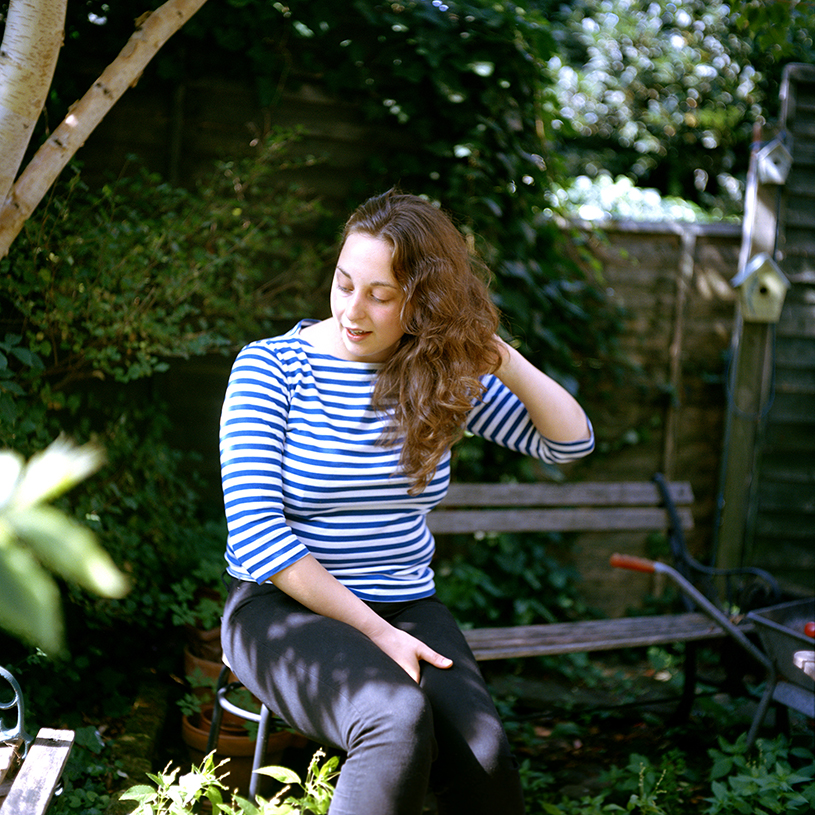
Becky-Dee and her brothers were conceived by IUI (Intrauterine Insemination) of sperm from an anonymous donor. Their mother is half-Dutch, and they grew up in Australia. They do not know anything about their biological father except that he was blond, 6’2, and had blue eyes. Recently Becky-Dee did a 23andMe DNA test to try to find out more.
Some of her friends are now considering donor children. “I’m just – being as open as I can – guiding them into thinking about the child and what’s the relationship with its donor going to be? How are you going to talk with them about it? With a lot of donors there’s no support for the parents. Some children are okay with it, some children aren’t. Their various personalities just form certain ideas quite early on. And I think there’s a lot of donor kids who don’t feel like they fit in, that don’t belong.”
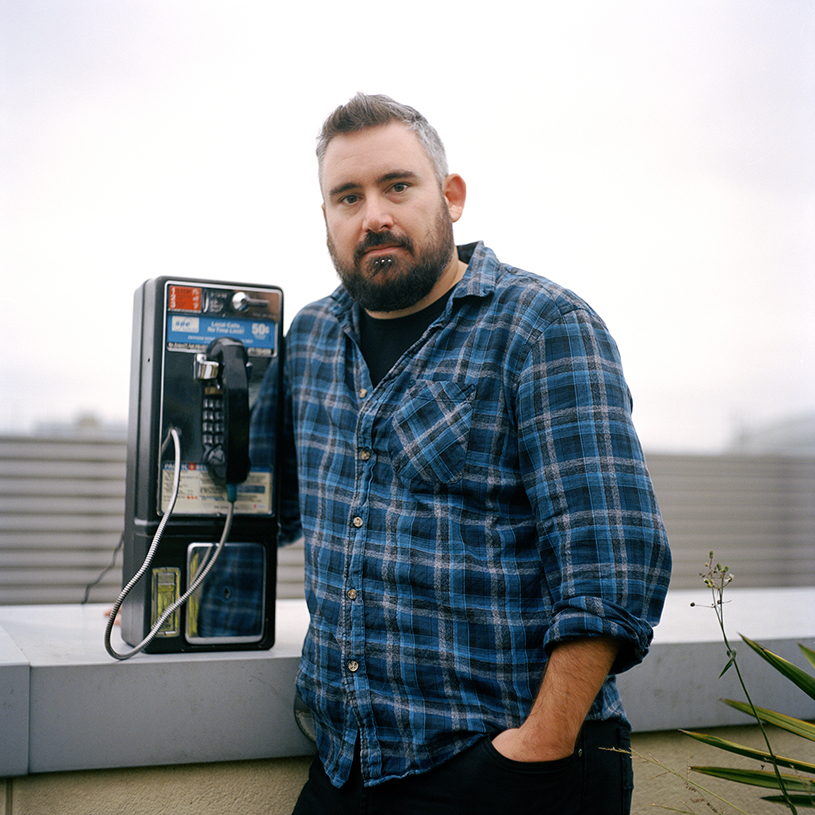
Dan runs technology start-ups and was initially interested in the technology side of 23andMe. He did his DNA test in 2014, the year that the company first launched in the UK. Having grown up in Essex as a white man, he was surprised to find out that his ethnic heritage was in fact 43.5% South Asian and that the man he had thought of as his father was not actually his biological father.
“The problem we have I think is that the technology is there, and the technology is what’s being driven by commercial enterprise, but the social aspect of it, we’re not ready for it – there’s jobs there for it, but the real commercial value in building a company around these things isn't.”
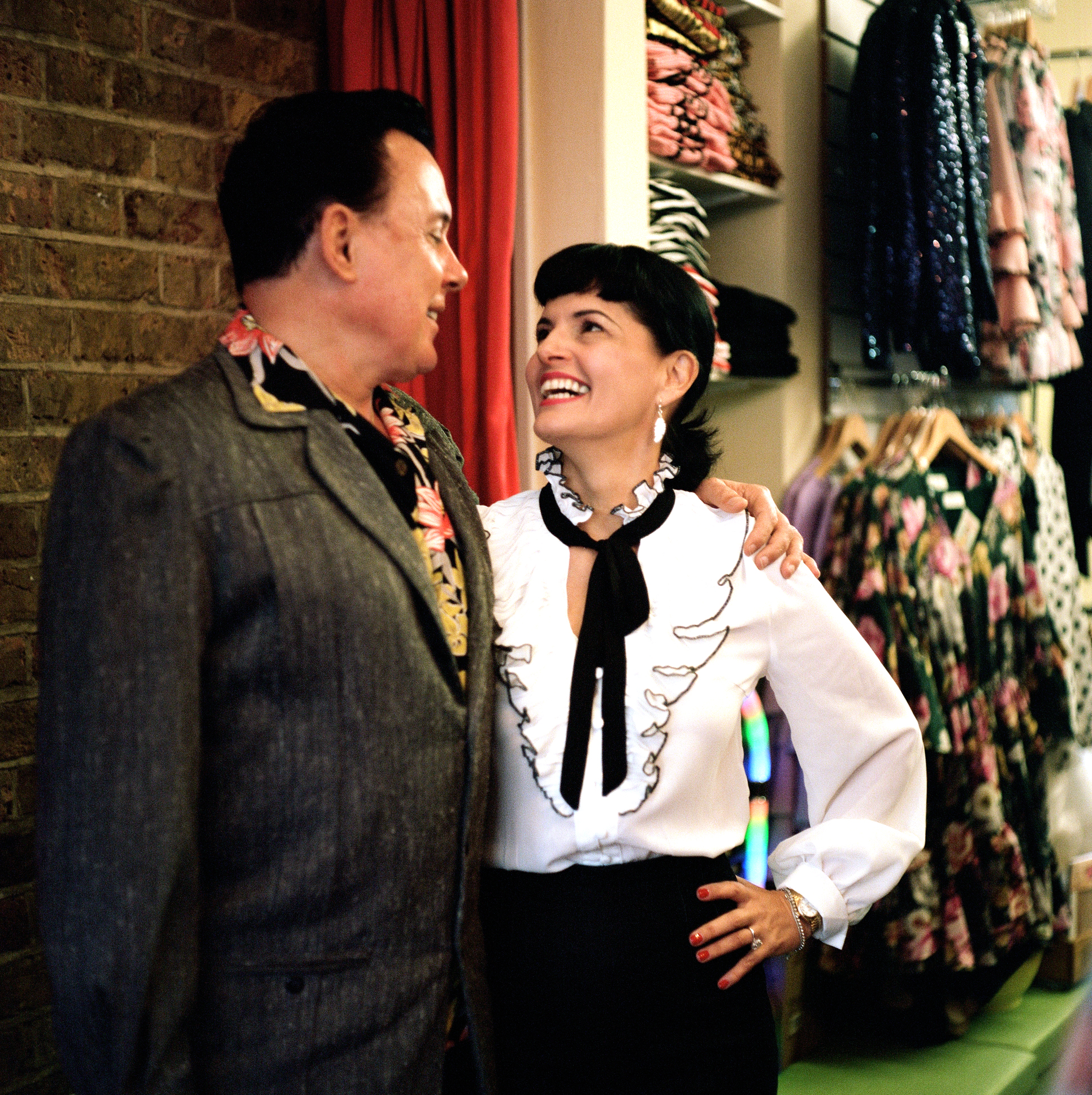
Bernie and Levi have both done AncestryDNA and 23andMe DNA tests. Their journey began when Bernie bought Levi a DNA test to see if he was interested in finding out about his father, who he didn’t know growing up. Bernie is American and Levi is English. They have lived in Hollywood and currently live in Leigh-on-Sea in England. Both Levi and Bernie discovered that their fathers were not who they had known them to be.
Levi: “To me it’s like going to the shoreline and going ‘This is cool, wouldn’t it be cool to flip this big boulder over and have a look underneath?’ And you kind of go ‘Come on let’s do it!’ like boys do. And you flip it over and you have a good look and you’re like ‘Oh my God! This is horrible!’ You find out all kinds of weird stuff. You have to be prepared.”
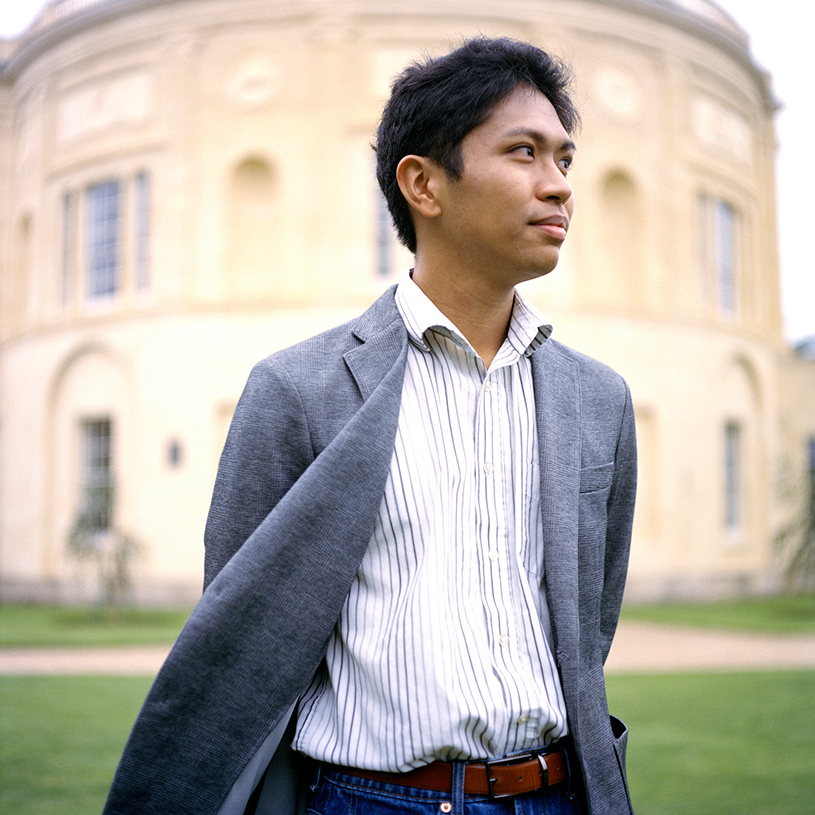
Marco was in his fifth year of medical school at Oxford University. His family is originally from the Philippines and moved to the UK when he was 10. He is interested in pursuing psychiatry as his medical specialism. In his third year, he did a research project that tried to create a risk score for different mental health conditions based on genes.
Marco’s primary reasons for doing a 23andMe test were curiosity and interest in the pharmacological side of the results. He remains cautious about genetics’ relationship with psychiatry.
“The idea of changing the genes in your brain cells is obviously a very controversial one because it’s linked a lot to identity. Not only do people have a lot of ideas of identity with regards to their genes, but also with their brain and their mind and how they think.”
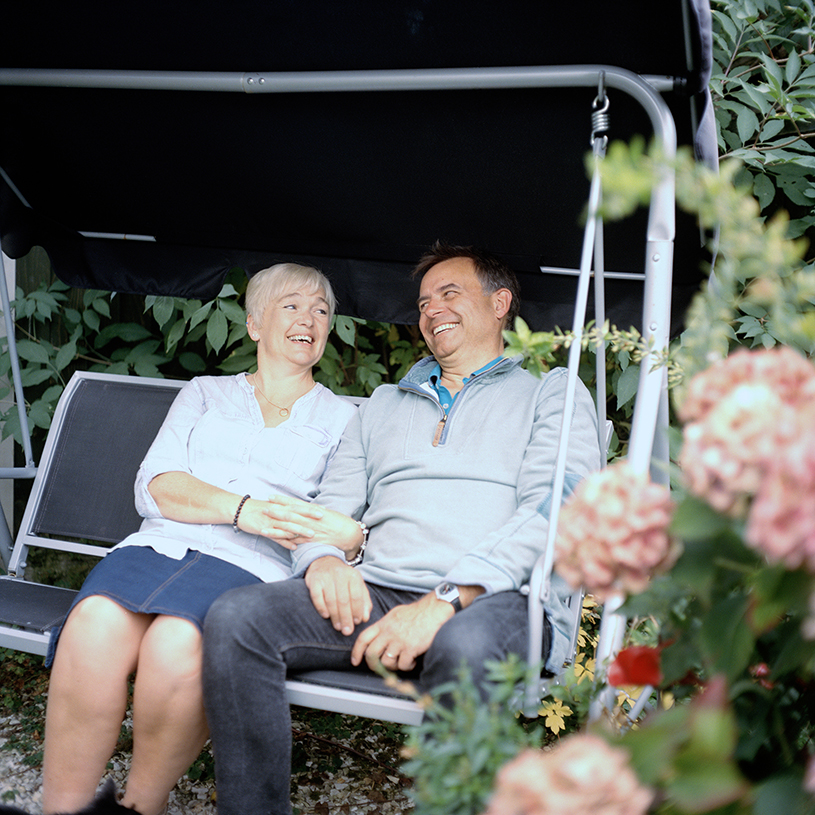
Carol and Stuart live in Penyffordd in North Wales. Over many years, Carol has traced nearly 1,500 of her own relatives and as many as she could find of her husband’s. Stuart is originally from Harlow, Essex, and Carol is from Beverley in Yorkshire. They were both participants in DNA Cymru, a multimedia project by Welsh-language broadcaster S4C that explored the heritage of modern Wales. Their son Ben, an academic in Anglo-Saxon, Norse and Celtic at Cambridge University, was also featured on the programme. The couple jokingly refer to Carol’s interest in genealogy as her ‘addiction’.
When their son Ben was growing up he developed a strong interest in Welsh history, using the same tool as his mother to do a genealogy of all the Welsh princes from the Romans leaving to the Normans arriving, research that he eventually used in
his academic career at Cambridge University. Carol’s research has featured in Ben’s papers, and Ben’s wife is an academic researching fairytales.
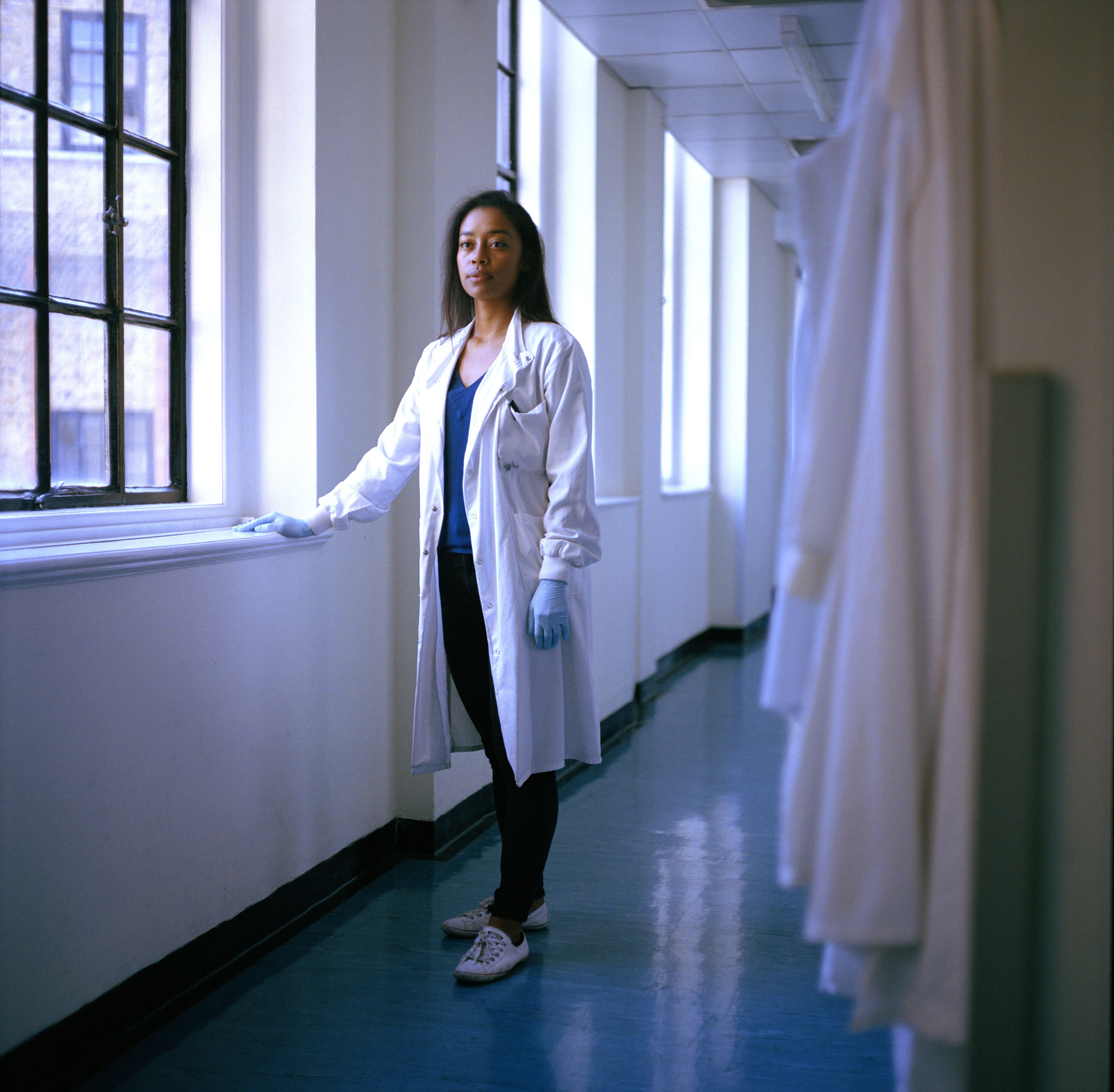
Pinky’s father is from Kenya and her mother is from China. She was born in Kenya and grew up in Canada. She did her 23andMe DNA test in 2013 while doing her PhD at the Wellcome Sanger Institute. She is now studying graduate medicine at Harvard University.
“I think my curiosity stems from: I’m studying genetics, I’m learning so much about how this technology can revolutionise medicine, something that’s been said for a while now, but it was at the point where it seemed that the services that were out there you could actually learn something interesting about yourself. And I think knowledge is power, so that’s why I did it.”
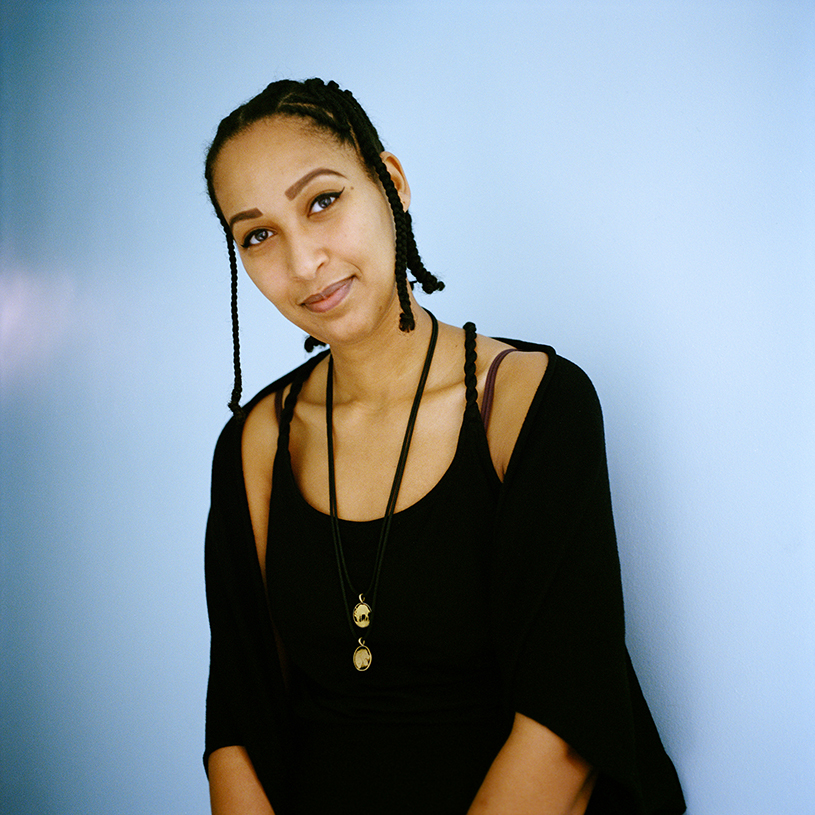
Menen is from Ethiopia. She was born in Sudan and came to the UK when she was three; she has lived here ever since. She did a 23andMe DNA test to confirm her identity and because of an interest in Africa and ancient civilisations. She is passionate about her cultural heritage and wants to start distilling Ethiopian alcohol since Ethiopia has a history of distilling spirits. Menen’s results showed her to be 75.5% Sub-Saharan African (75% East African), 22.2% Middle Eastern and North African, 0.8% European, 0.2% South Asian.
“I’ve never fit in society’s boxes. It’s ambiguous. So for me what was exciting was the confirmation that I am what I say I am.”
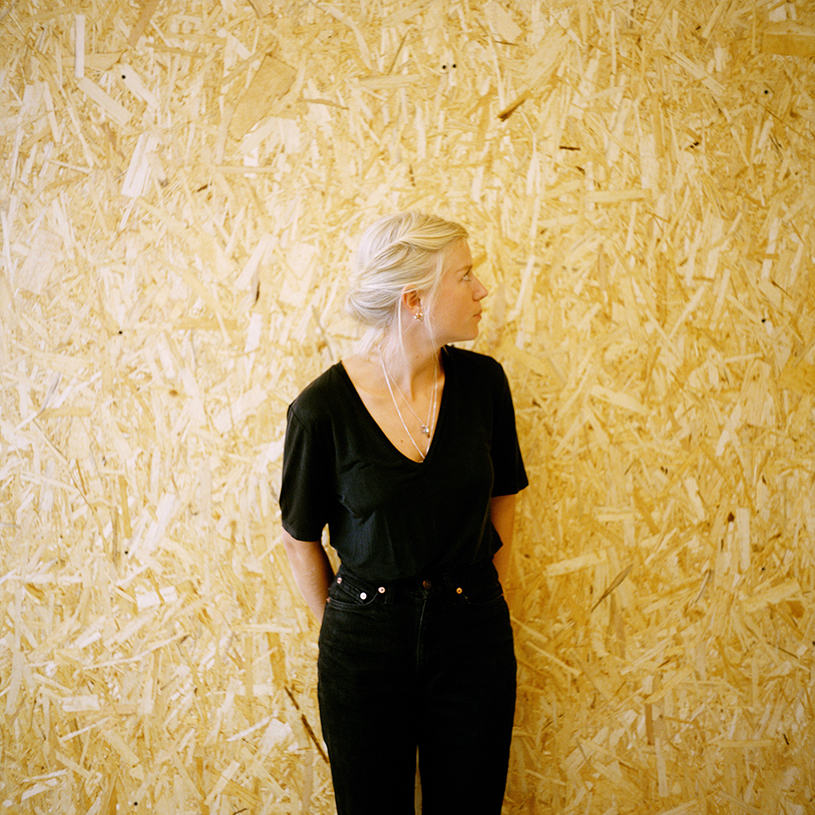
Verity is an Artist living and working in London. In 2016 she made her work Omens of the Pleistocene, which was shown at IMT Gallery in London and Brooklyn Fire Proof in New York. As part of the research process she read William Golding’s book The Inheritors and became interested in deep ancestry and prehistoric human species. She did her DNA test with 23andMe to try and find a personal connection with Neanderthals. The test showed that she had 325 Neanderthal variants, which is more than 97% of 23andMe customers.
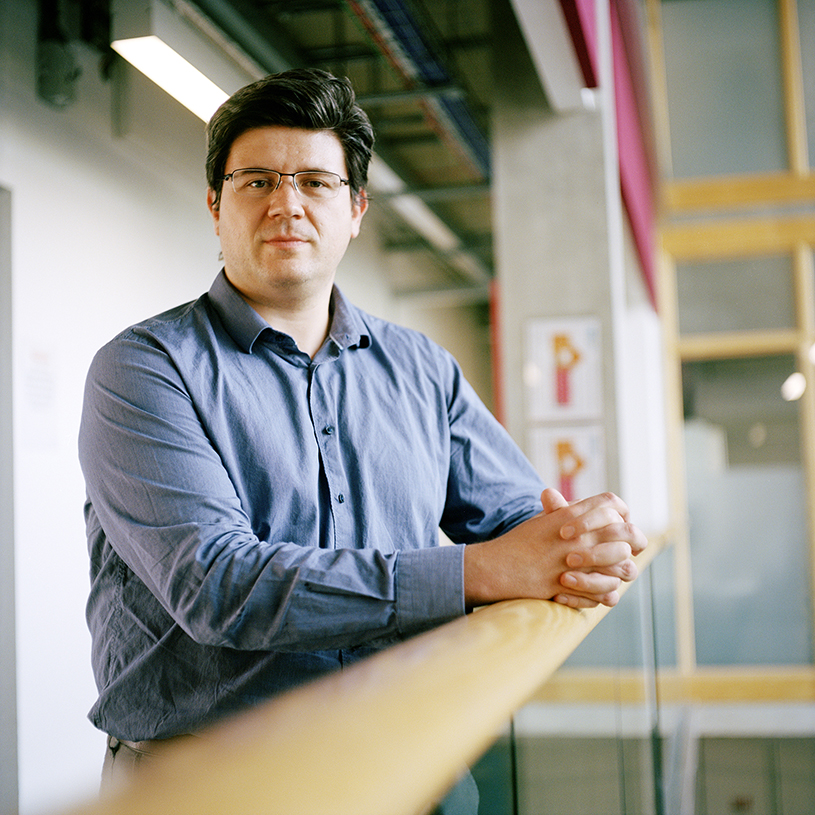
Manuel is CEO and Founder of Cambridge Precision Medicine. Previously he was a Senior Developer at the Sanger Institute working on a database called DECIPHER that aimed to provide a repository of anonymised patient data from rare genomic diseases, which clinicians used as a catalogue for diagnostic purposes. In 2015 he published an article about how he had managed to crowdsource analysis of his family’s genome. The DNA data included that of himself, his sister, his parents, and his aunt. His own DNA test was done with 23andMe.
“The end goal is really to learn, to have the greatest overview of my own personal family genome understanding...and I believe that no single provider of testing is gonna ever give you a complete view of what’s out there... I’m a little bit like an explorer, you know. I’m just exploring. And things change very fast, and new tests come and we keep analysing ourselves again and again with different tests, new things, we are just trying and then reporting to the world what it is that we find.”
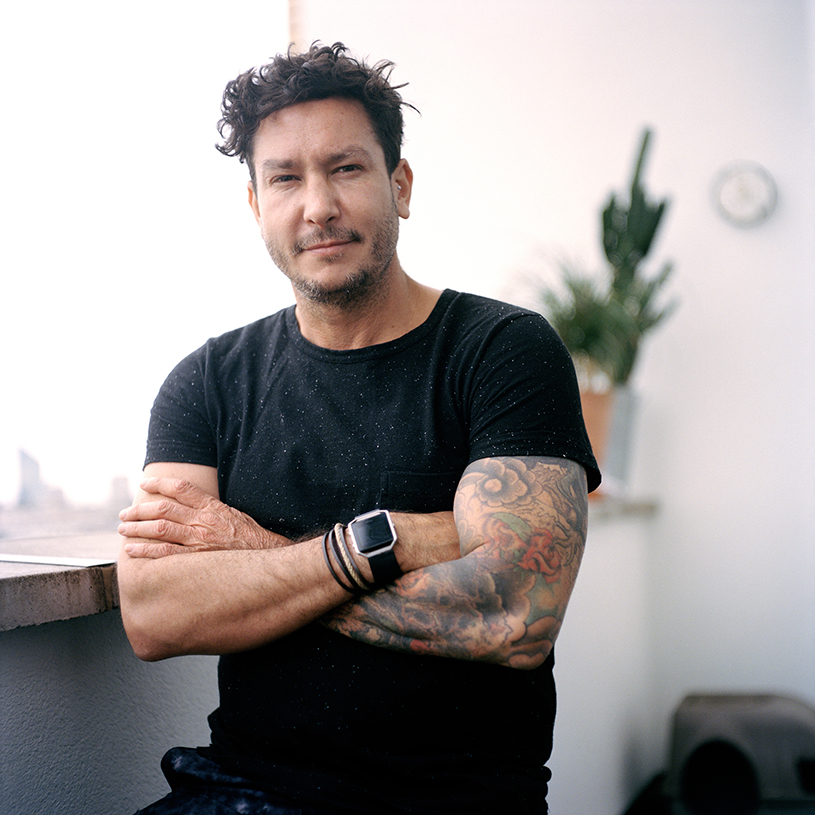
Alfie has done two DNA tests. The first was The Genographic Project by National Geographic and IBM, which launched in 2005. The second was the 23andMe DNA test, which launched in the UK in 2014. He was born in Johannesburg, South Africa, and has lived in the UK for a total of 26 years.
“I did it just because I’m interested in the science of it and interested in understanding the difference between the epigenetics of genes and traits and then how behaviour then influences those as they actually exhibit themselves in your life.”
The biggest change that he made since taking the 23andMe test was to address his health regime. At the time that he took his test he weighed approximately 102kg, his heaviest weight. Today, he weighs 83kg.
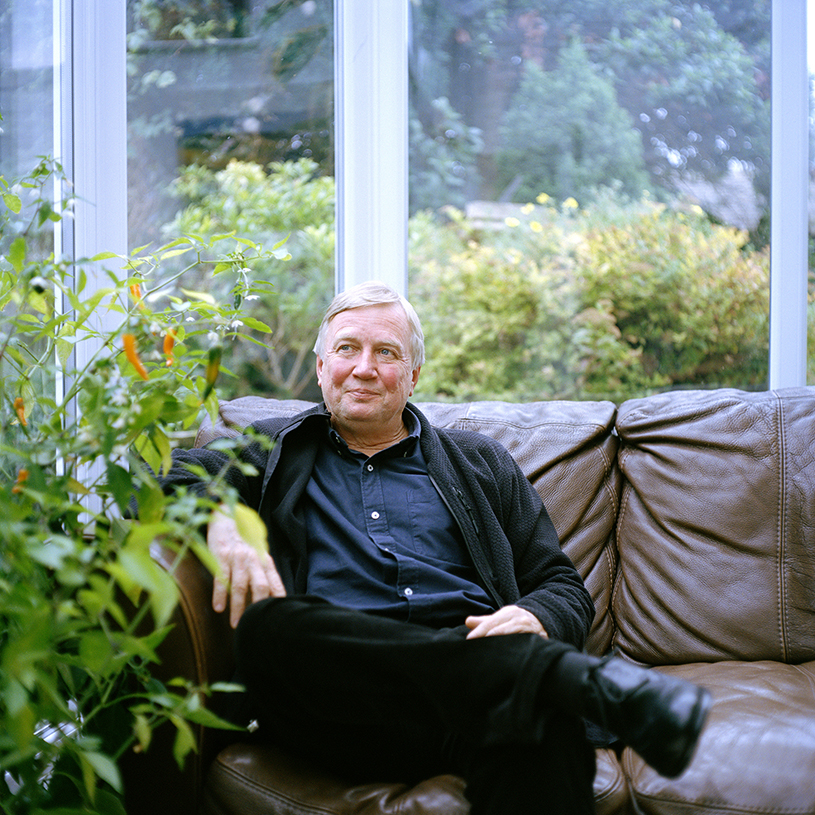
Martyn is an Emeritus Professor of BioMedical Imaging at the University of Sheffield. He has been involved with Nuclear Magnetic Resonance (NMR) and Magnetic Resonance Imaging and Spectroscopy (MRI/S) since 1973. He was bought a Geno 2.0 Next Generation kit by his daughter and son-in-law on his 60th birthday in 2014. His wife Jacki did an AncestryDNA test.
Martyn found that he was related to William Paley (1743- 1805), a clergyman known for his teleological argument for the existence of God in Natural Theology or Evidences of the Existence and Attributes of the Deity, where he used the watchmaker analogy later made famous by Richard Dawkins in The Blind Watchmaker.











Becky-Dee and her brothers were conceived by IUI (Intrauterine Insemination) of sperm from an anonymous donor. Their mother is half-Dutch, and they grew up in Australia. They do not know anything about their biological father except that he was blond, 6’2, and had blue eyes. Recently Becky-Dee did a 23andMe DNA test to try to find out more.
Some of her friends are now considering donor children. “I’m just – being as open as I can – guiding them into thinking about the child and what’s the relationship with its donor going to be? How are you going to talk with them about it? With a lot of donors there’s no support for the parents. Some children are okay with it, some children aren’t. Their various personalities just form certain ideas quite early on. And I think there’s a lot of donor kids who don’t feel like they fit in, that don’t belong.”
Dan runs technology start-ups and was initially interested in the technology side of 23andMe. He did his DNA test in 2014, the year that the company first launched in the UK. Having grown up in Essex as a white man, he was surprised to find out that his ethnic heritage was in fact 43.5% South Asian and that the man he had thought of as his father was not actually his biological father.
“The problem we have I think is that the technology is there, and the technology is what’s being driven by commercial enterprise, but the social aspect of it, we’re not ready for it – there’s jobs there for it, but the real commercial value in building a company around these things isn't.”
Bernie and Levi have both done AncestryDNA and 23andMe DNA tests. Their journey began when Bernie bought Levi a DNA test to see if he was interested in finding out about his father, who he didn’t know growing up. Bernie is American and Levi is English. They have lived in Hollywood and currently live in Leigh-on-Sea in England. Both Levi and Bernie discovered that their fathers were not who they had known them to be.
Levi: “To me it’s like going to the shoreline and going ‘This is cool, wouldn’t it be cool to flip this big boulder over and have a look underneath?’ And you kind of go ‘Come on let’s do it!’ like boys do. And you flip it over and you have a good look and you’re like ‘Oh my God! This is horrible!’ You find out all kinds of weird stuff. You have to be prepared.”
Marco was in his fifth year of medical school at Oxford University. His family is originally from the Philippines and moved to the UK when he was 10. He is interested in pursuing psychiatry as his medical specialism. In his third year, he did a research project that tried to create a risk score for different mental health conditions based on genes.
Marco’s primary reasons for doing a 23andMe test were curiosity and interest in the pharmacological side of the results. He remains cautious about genetics’ relationship with psychiatry.
“The idea of changing the genes in your brain cells is obviously a very controversial one because it’s linked a lot to identity. Not only do people have a lot of ideas of identity with regards to their genes, but also with their brain and their mind and how they think.”
Carol and Stuart live in Penyffordd in North Wales. Over many years, Carol has traced nearly 1,500 of her own relatives and as many as she could find of her husband’s. Stuart is originally from Harlow, Essex, and Carol is from Beverley in Yorkshire. They were both participants in DNA Cymru, a multimedia project by Welsh-language broadcaster S4C that explored the heritage of modern Wales. Their son Ben, an academic in Anglo-Saxon, Norse and Celtic at Cambridge University, was also featured on the programme. The couple jokingly refer to Carol’s interest in genealogy as her ‘addiction’.
When their son Ben was growing up he developed a strong interest in Welsh history, using the same tool as his mother to do a genealogy of all the Welsh princes from the Romans leaving to the Normans arriving, research that he eventually used in
his academic career at Cambridge University. Carol’s research has featured in Ben’s papers, and Ben’s wife is an academic researching fairytales.
Pinky’s father is from Kenya and her mother is from China. She was born in Kenya and grew up in Canada. She did her 23andMe DNA test in 2013 while doing her PhD at the Wellcome Sanger Institute. She is now studying graduate medicine at Harvard University.
“I think my curiosity stems from: I’m studying genetics, I’m learning so much about how this technology can revolutionise medicine, something that’s been said for a while now, but it was at the point where it seemed that the services that were out there you could actually learn something interesting about yourself. And I think knowledge is power, so that’s why I did it.”
Menen is from Ethiopia. She was born in Sudan and came to the UK when she was three; she has lived here ever since. She did a 23andMe DNA test to confirm her identity and because of an interest in Africa and ancient civilisations. She is passionate about her cultural heritage and wants to start distilling Ethiopian alcohol since Ethiopia has a history of distilling spirits. Menen’s results showed her to be 75.5% Sub-Saharan African (75% East African), 22.2% Middle Eastern and North African, 0.8% European, 0.2% South Asian.
“I’ve never fit in society’s boxes. It’s ambiguous. So for me what was exciting was the confirmation that I am what I say I am.”
Verity is an Artist living and working in London. In 2016 she made her work Omens of the Pleistocene, which was shown at IMT Gallery in London and Brooklyn Fire Proof in New York. As part of the research process she read William Golding’s book The Inheritors and became interested in deep ancestry and prehistoric human species. She did her DNA test with 23andMe to try and find a personal connection with Neanderthals. The test showed that she had 325 Neanderthal variants, which is more than 97% of 23andMe customers.
Manuel is CEO and Founder of Cambridge Precision Medicine. Previously he was a Senior Developer at the Sanger Institute working on a database called DECIPHER that aimed to provide a repository of anonymised patient data from rare genomic diseases, which clinicians used as a catalogue for diagnostic purposes. In 2015 he published an article about how he had managed to crowdsource analysis of his family’s genome. The DNA data included that of himself, his sister, his parents, and his aunt. His own DNA test was done with 23andMe.
“The end goal is really to learn, to have the greatest overview of my own personal family genome understanding...and I believe that no single provider of testing is gonna ever give you a complete view of what’s out there... I’m a little bit like an explorer, you know. I’m just exploring. And things change very fast, and new tests come and we keep analysing ourselves again and again with different tests, new things, we are just trying and then reporting to the world what it is that we find.”
Alfie has done two DNA tests. The first was The Genographic Project by National Geographic and IBM, which launched in 2005. The second was the 23andMe DNA test, which launched in the UK in 2014. He was born in Johannesburg, South Africa, and has lived in the UK for a total of 26 years.
“I did it just because I’m interested in the science of it and interested in understanding the difference between the epigenetics of genes and traits and then how behaviour then influences those as they actually exhibit themselves in your life.”
The biggest change that he made since taking the 23andMe test was to address his health regime. At the time that he took his test he weighed approximately 102kg, his heaviest weight. Today, he weighs 83kg.
Martyn is an Emeritus Professor of BioMedical Imaging at the University of Sheffield. He has been involved with Nuclear Magnetic Resonance (NMR) and Magnetic Resonance Imaging and Spectroscopy (MRI/S) since 1973. He was bought a Geno 2.0 Next Generation kit by his daughter and son-in-law on his 60th birthday in 2014. His wife Jacki did an AncestryDNA test.
Martyn found that he was related to William Paley (1743- 1805), a clergyman known for his teleological argument for the existence of God in Natural Theology or Evidences of the Existence and Attributes of the Deity, where he used the watchmaker analogy later made famous by Richard Dawkins in The Blind Watchmaker.